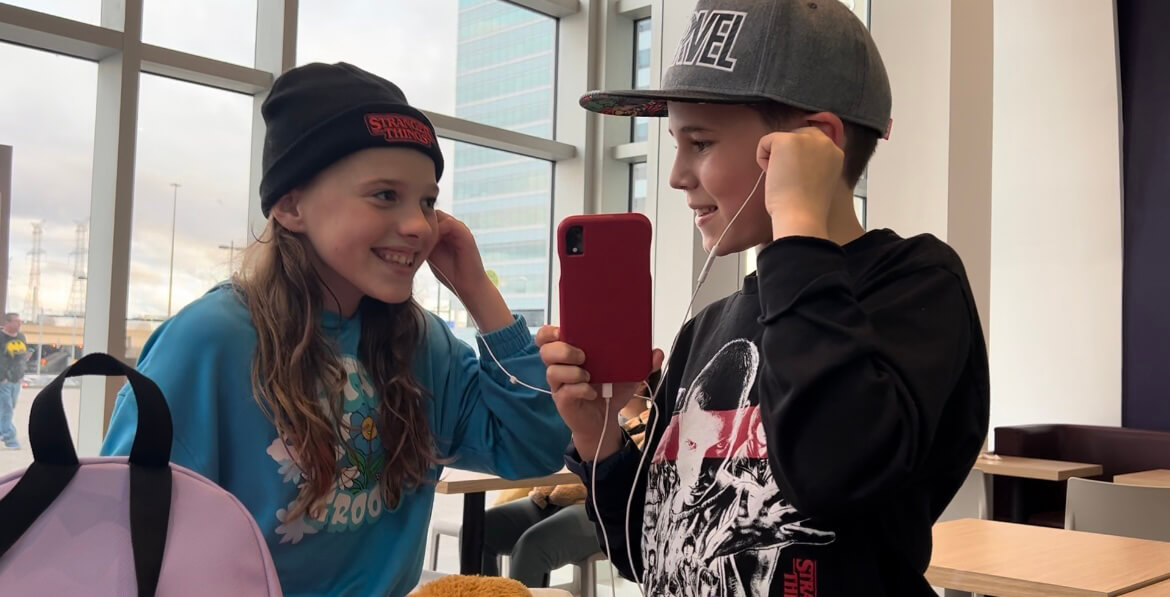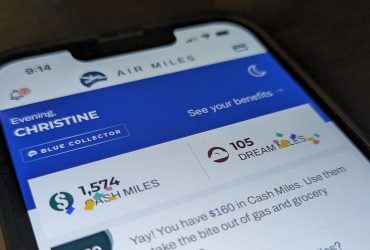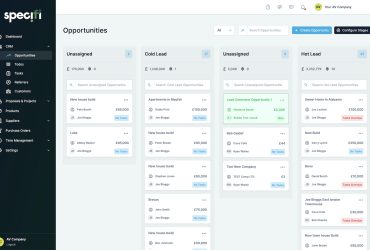We live in a different world today than we did decades ago when it comes to parenting and kids. While most of us grew up researching topics in a library, calling our friends from pay phones, and being out all hours of the late afternoon without parents knowing where we were (and having no way to reach us), kids today are of an entirely new, high-tech generation. They grew up with technology, playing with touchscreens and electronic devices from as young as a toddler age. After being immersed in technology from such an early age, and living in a society where technology is dominant, there inevitably comes that dreaded day in any parent’s life when they get asked the pivotal question: “when can I get a cell phone?”
As mother to an 11-year-old, I’m dealing with that already. While my son has been gifted my old iPhone XR, it is not activated on a cellular network. He has an Apple ID (set up and monitored by his dad) but he can only use the phone when he’s on a Wi-Fi network or when connected to one of our Personal Hotspots. He does still, however, bring it along when we’re out and about to use it for taking photos, listening to music, and playing offline games for road trips. He asks constantly about getting a plan as he pushes more and more for independence. I often tell him that will only happen when he’s permitted to walk home from school on his own, which always leads to the obvious follow-up: “then when can I walk home from school alone?”
There is a lot of debate over the right age to give a child a cell phone. Truthfully, it all comes down to a few main factors: responsibility, maturity, family budget, and trust. While a responsible 10-year-old might be ready for a smartphone, an irresponsible 13-year-old might not be. Nonetheless, the conversation has been fueled through a new survey conducted by telecom comparison site WhistleOut, which set out to find out what age parents think is most appropriate for a child to have a phone, and why they think they need one.
So, what were the results? The survey found that the sweet spot for kids to get their first cell phone is aged 13. The majority of respondents (38%) indicated that 11-13 years old is the ideal age, but 29% said 14-16 years old, which is well into high school years. A surprising 17%, however, think a child should have a cell phone as early as ages 7 and 10, while conversely, 5% are particularly strict, believing a phone with a plan is only appropriate for kids who are 17 and 18 years old. Technically, 18 would categorize a child as a young adult. Four per cent think 18 and older is the right age for having a cell phone.
Interestingly, the survey also found that one in three Millennial parents received their first cell phone before they turned 14. Remember, Millennials were born between 1981 and 1996, which means the youngest of them is currently 27 but the oldest are already in their 40s. These adults grew up with technology and many of them have teenagers of their own already (feeling old yet, Gen-Xers?). The age for getting a cell phone continues to get younger, with more Gen Zers, born between 1997 and 2013 (making them between 10 and 26), having received their first mobile between 11 and 13.
Why are parents getting their kids phones earlier and earlier? Most parents in the survey say it’s to communicate with them while they are in school (strangely, our parents never felt the need to do that) and for emergencies. “In case of emergency,” in fact, was cited by 82% of the parents who caved and got their younger kids phones.
Kids these days are the most connected ever, with 66% already having access to a cell phone. 61% to a tablet with Internet connectivity, 48% to a computer with Internet connectivity (arguably a necessity for school nowadays), and 22% to a smartwatch. Access in the home is at 39% but 47% say their kids have access both at home and at school (again, arguably due to necessity for schoolwork). Only 8% of parents say their kids never have access to electronic devices.
Parents still want to maintain some level of control, though, with half saying they want to have parental controls on their kids’ phones (though it’s unclear how many actually follow through with that desire). Thirty-one per cent even want GPS location tracking. Only 3% actually care about limiting screen time.
The survey was conducted with more than 400 parents along with an additional 1,000 U.S. adults (presumably who aren’t parents).
So, what’s the right answer? It’s really up to the parents to decide based on what they know about their child and if they feel it’s a necessity. I have told my son, who already has a phone, that he’ll tentatively receive a cellular plan to use with it next year, when he’s 12. But this hinges on whether or not he’s permitted to walk to school, about 10 minutes away, on his own. If he’s not doing that, I see no value in getting a plan for him. But you might think differently. There’s no right or wrong answer, just parents trying to do the best we can.
With that said, if you have decided to bite the bullet, here are some tips to consider.
Tips for Getting Your Child a Smartphone
Be Mindful of School Rules
Many schools have an outright ban on cell phones during school hours unless it’s for emergencies or with prior permission. Most kids who have cell phones are only permitted to use them after school to contact parents as needed or else they will be confiscated until the end of the day. Be respectful of the rules of the school. If your child requires an exception to be able to check in if they are coming home for lunch, for example, discuss with school administration ahead of time.
Use Find My
The finder feature for iPhone and Android devices is worth setting up. This will not only help you find a lost or stolen phone, protecting your investment (you’re the one paying for the phone, after all), but also to keep track of your child’s location. Back in the day, kids could fib and say they were at the mall when they were really at their boyfriend’s house, or skip school with the parent being none the wiser. The trade-off for having a cell phone is full transparency. Parents will know where the child is at all times, which is good for safety reasons. But this can also help build trust, especially with older kids to prove they are responsible. But the child should be made aware that parents have this feature activated, because trust goes both ways.
Set Up Parental Controls
Parental controls can be useful and a worthwhile compromise for a child getting a phone at all. You can set limits on screen time, block potentially harmful websites, even music with explicit lyrics should you choose to get a phone for a younger child. Note that kids are resourceful and they will find ways around it. So, keep on top of their usage and have discussions with them about important topics. While you never want to lose trust by sneaking a look at their phone, try to engage in conversation where they will want to share things with you about what they are looking at, conversations they’re participating in, and what they are sharing online. Be aware of things like Finsta accounts as well, fake Instagram accounts that are virtually impossible to find and kids use to share photos they don’t want their parents to see.
Monitor Data Usage
Most carriers now have plans whereby data is simply slowed down if you go over versus charging astronomical overage fees. Nonetheless, monitor your child’s data usage to ensure they are staying within the parameters they should be. A good friend of mine recently dealt with her 13-year-old daughter who fell asleep while streaming music and racked up a massive bill. Make sure the child knows expectations: if they ever exceed the allotted data or call minutes, the phone will be taken away.
Limit Use
It’s crucial to limit how much screen time your child gets with a device should you choose to oblige. Two-thirds of Americans believe that having phones contributes to cell phone addiction among kids, according to the WhistleOut survey. Another 61% believe that access to phones contributes to anxiety and depression. Along with limiting screen time overall, it’s also important to be mindful of which social media apps kids are using and how. Do your research to make an informed decision versus falling for the typical “all my friends have it” argument. Make sure the child isn’t using the device right before bed either, potentially even going so far as to keep the phone out of their rooms at night, returning it to them in the mornings.
Get a Limited Plan
Most carriers have affordable plans designed specifically for students and for minimal use. Make sure they have some call minutes each month and a reasonable amount of data: enough to be able to contact you through a data messaging app if needed, send and receive messages, and do some light web surfing and streaming. Research the available options and look at family plans as well whereby data is shared.









